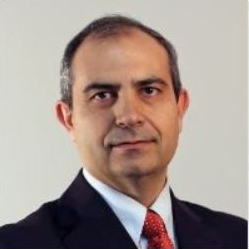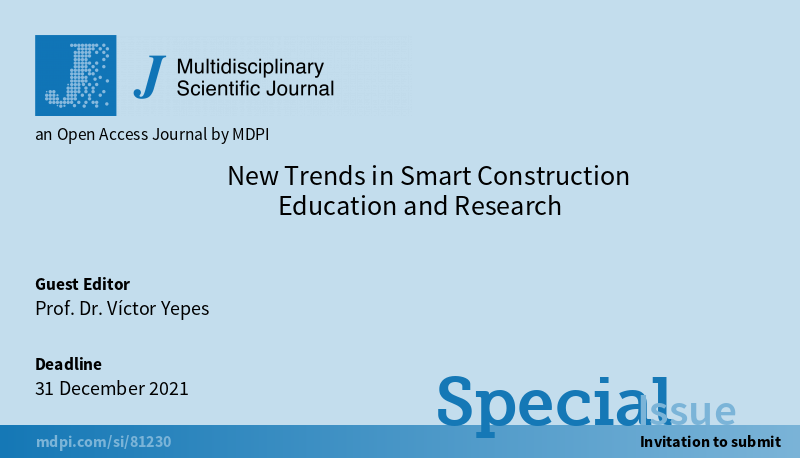 Acaban de publicarnos un artículo en la revista IEEE Access, revista de alto impacto indexada en el JCR. En este caso se ha realizado un análisis conceptual macroscópico de la industria AEC-AI (Arquitectura, Ingeniería, Construcción e Inteligencia Artificial). El trabajo se enmarca dentro del proyecto de investigación HYDELIFE que dirijo como investigador principal en la Universitat Politècnica de València.
Acaban de publicarnos un artículo en la revista IEEE Access, revista de alto impacto indexada en el JCR. En este caso se ha realizado un análisis conceptual macroscópico de la industria AEC-AI (Arquitectura, Ingeniería, Construcción e Inteligencia Artificial). El trabajo se enmarca dentro del proyecto de investigación HYDELIFE que dirijo como investigador principal en la Universitat Politècnica de València.
La industria de la arquitectura, la ingeniería y la construcción (AEC) constituye uno de los sectores productivos más relevantes, por lo que también produce un alto impacto en los equilibrios económicos, la estabilidad de la sociedad y los desafíos globales en el cambio climático. En cuanto a su adopción de tecnologías, aplicaciones y procesos también se reconoce por su status-quo, su lento ritmo de innovación, y los enfoques conservadores. Sin embargo, una nueva era tecnológica -la Industria 4.0 alimentada por la IA- está impulsando los sectores productivos en un panorama sociopolítico y de competencia tecnológica global altamente presionado. En este trabajo, desarrollamos un enfoque adaptativo para la minería de contenido textual en el corpus de investigación de la literatura relacionada con las industrias de la AEC y la IA (AEC-AI), en particular en su relación con los procesos y aplicaciones tecnológicas. Presentamos un enfoque de primera etapa para una evaluación adaptativa de los algoritmos de IA, para formar una plataforma integradora de IA en la industria AEC, la industria AEC-AI 4.0. En esta etapa, se despliega un método adaptativo macroscópico para caracterizar la “Optimización”, un término clave en la industria AEC-AI, utilizando una metodología mixta que incorpora el aprendizaje automático y el proceso de evaluación clásico. Nuestros resultados muestran que el uso eficaz de los metadatos, las consultas de búsqueda restringidas y el conocimiento del dominio permiten obtener una evaluación macroscópica del concepto objetivo. Esto permite la extracción de un mapeo de alto nivel y la caracterización de la estructura conceptual del corpus bibliográfico. Los resultados son comparables, a este nivel, a las metodologías clásicas de revisión de la literatura. Además, nuestro método está diseñado para una evaluación adaptativa que permita incorporar otras etapas.
Abstract:
The Architecture, Engineering, and Construction (AEC) Industry is one of the most important productive sectors, hence also produce a high impact on the economic balances, societal stability, and global challenges in climate change. Regarding its adoption of technologies, applications and processes is also recognized by its status-quo, its slow innovation pace, and the conservative approaches. However, a new technological era – Industry 4.0 fueled by AI- is driving productive sectors in a highly pressurized global technological competition and sociopolitical landscape. In this paper, we develop an adaptive approach to mining text content in the literature research corpus related to the AEC and AI (AEC-AI) industries, in particular on its relation to technological processes and applications. We present a first stage approach to an adaptive assessment of AI algorithms, to form an integrative AI platform in the AEC industry, the AEC-AI industry 4.0. At this stage, a macroscopic adaptive method is deployed to characterize “Optimization,” a key term in AEC-AI industry, using a mixed methodology incorporating machine learning and classical evaluation process. Our results show that effective use of metadata, constrained search queries, and domain knowledge allows getting a macroscopic assessment of the target concept. This allows the extraction of a high-level mapping and conceptual structure characterization of the literature corpus. The results are comparable, at this level, to classical methodologies for the literature review. In addition, our method is designed for an adaptive assessment to incorporate further stages.
Keywords:
Architecture, engineering and construction, AEC, artificial intelligence, literature corpus, machine learning, optimization algorithms, knowledge mapping and structure
Reference:
MAUREIRA, C.; PINTO, H.; YEPES, V.; GARCÍA, J. (2021). Towards an AEC-AI industry optimization algorithmic knowledge mapping. IEEE Access, 9:110842-110879. DOI:10.1109/ACCESS.2021.3102215



